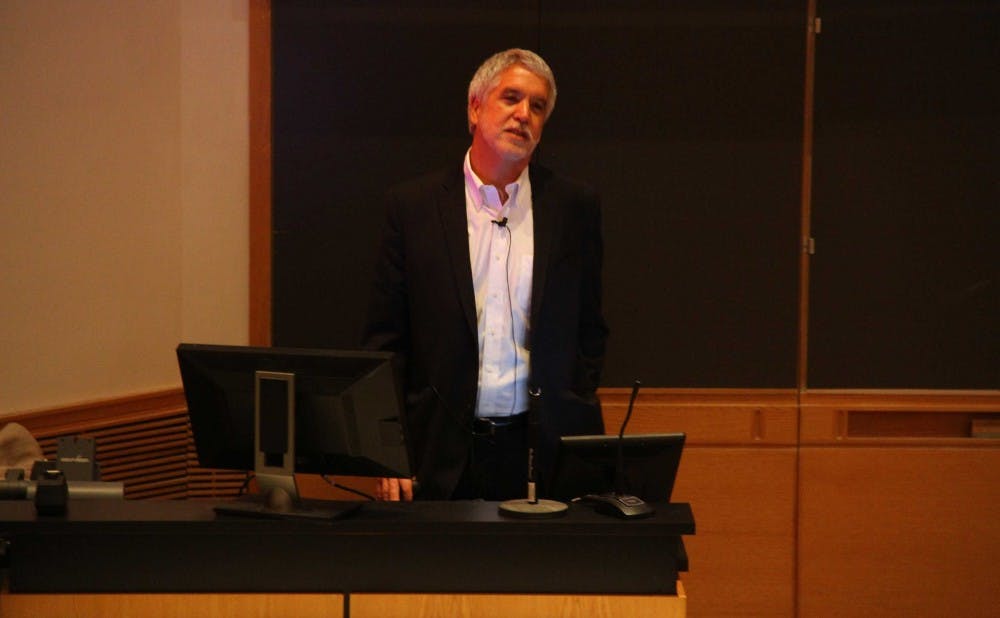Enrique Peñalosa, Duke '78 and former mayor of Bogotá, shared his vision for creating a more democratic society through rethinking urban spaces.
His talk, titled “Democracy and Quality of Urban Life," centered on the insights into urban change he gained over his three years as mayor. Although urban inequality is often attributed to income disparities, wealth is by no means the only obstacle to democratic society, he said. The inequitable use of urban space is a major problem few have tackled—yet one which was the centerpiece of Peñalosa's tenure in office. During his time as mayor, Peñalosa spearheaded many projects to improve infrastructure and livability in Bogotá.
“Many people on right and left love to give money to the poor, but that does not create equality and risks destroying self-esteem,” Peñalosa said. “Regardless of income level, a good city can construct inclusion.”
Although only 20 percent of Bogotá's population owned cars, the proportion of road space allocated for cars far exceeded that allotted to other forms of transportation, he said. For Peñalosa, this unequal distribution of space seemed undemocratic.
"Tens of thousands of children get killed by cars every year, and it's shocking that we find this normal," he said, adding that sidewalks are a "human right." Streets used to be the place for the community to come together, he said.
During his time as mayor of Bogotá—a city with a population size approximately the same as London’s and growing rapidly—Peñalosa created major changes in the city’s land use, sustainability and transportation.
During his three years in office, he approved 600 small-scale, community-organized projects, many in low-income communities. He also helped expand sewage access to 99 percent of the population, constructed 1,000 parks and built more than 250 kilometers of bike lanes. He is responsible for the city’s acclaimed “Transmilenio” transit system as well.
“Every detail in a city should reflect that human beings are sacred, and that they are equal,” Peñalosa said.
The event took place at the Levine Science Research Center Thursday evening and was attended by a mix of students, faculty and community members. He fielded questions on topics ranging from his favorite city in America—New York—to the politics of creating change.
“I grew up in Bogotá, and it’s extraordinary how he was able to do so much,” said Gustavo Montana, a professor of radiation oncology in the School of Medicine who attended the event.
Not all of these changes came easily, and Peñalosa almost faced impeachment.
“I had to send my 12-year-old daughter to live in Canada,” Peñalosa said with a chuckle.
Peñalosa is one of a succession of mayors who have sought to combat rising inequality in Columbia, said Miguel Rojas-Sotelo, the special events coordinator for the Center of Latin American and Caribbean Studies.
“Some cities are sending a different kind of message of development, and it’s our job to share it,” Rojas-Sotelo said.
The event was co-hosted by the Center for Latin American and Caribbean Studies and the Nicholas School of the Environment.
Get The Chronicle straight to your inbox
Signup for our weekly newsletter. Cancel at any time.
Adam Beyer is a senior public policy major and is The Chronicle's Digital Strategy Team director.

